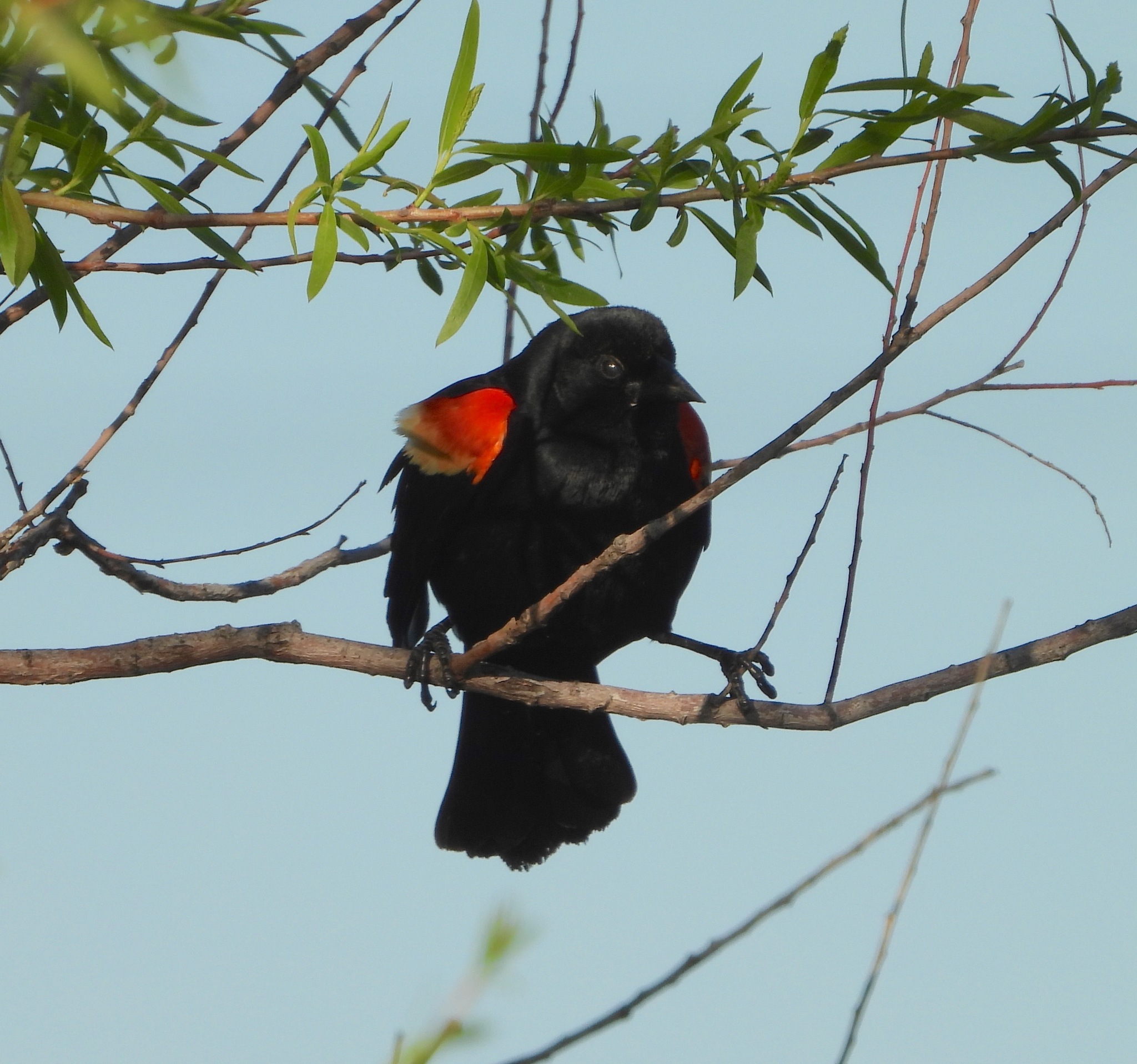DENTON (UNT), Texas — The University of North Texas Pecan Creek Pollinative Prairie is once again in full bloom. Each new season welcomes more biodiversity to the area near the UNT Discovery Park Campus and a rich educational space for the UNT community to conduct important environmental research.
For the past five years, members of the UNT community have been developing the Pollinative Prairie project to provide a space for students, faculty and staff to promote conservation and sustainable urban landscaping of native habitats for declining pollinator populations.
Dr. Jaime Baxter-Slye, an instructional laboratory supervisor and adjunct lecturer in the Department of Biological Sciences, co-manages the project alongside Dr. Michael Thompson, principal lecturer in the Department of Philosophy and Religion. To date, more than 600 species have been documented at the prairie – 170 of those during the Fall 2020 semester alone. The iNaturalist project for the Pollinative Prairie is a collaborative effort of 129 participants comprised of students, faculty and volunteers.
Perhaps the most impressive development is the growing diversity of bird species on the prairie, including a breeding pair of American Kestrels, a bird that is the focus of one ecology student’s doctoral research, which receives support from the Peregrine’s Fund American Kestrel Partnership.
“Most of the birds we see are either secondary or tertiary consumers,” Dr. Baxter-Slye said. “That means they are predators. And that means the prairie is providing a really important habitat with the necessary food resources for avian species that consume other animals, like insects, small rodents and small birds.”
Because of the growing diversity of bird species an d interest in ornithology research at UNT, the student chapter of the Society for Ecological Restoration recently announced its official affiliation with the National Audubon Society, and plans are also in the works to designate a UNT Bird Campus Committee.
d interest in ornithology research at UNT, the student chapter of the Society for Ecological Restoration recently announced its official affiliation with the National Audubon Society, and plans are also in the works to designate a UNT Bird Campus Committee.
The iNaturalist project website has a complete catalog of birds identified at the Pollinative Prairie.
COVID-19 restrictions in 2020 slowed many research activities on campus, but Dr. Baxter-Slye was granted permission for a small team of students to continue work on essential tasks for the health of the prairie. They have been growing native plants in environmental science’s greenhouse for a late spring planting, including milkweed, indiangrass and mistflowers.
In the fall, ecology students focused on an analysis of pollinators.
“We observed an abundance of mating monarchs this fall,” Dr. Baxter-Slye said. “In the spring and summer, we documented a Sonoran bumblebee that is not usually found in our area and many other important pollinators. They really like the mistflowers.”
Located on four acres of the east field at the UNT Discovery Park Campus, the Pollinative Prairie is experiencing new developments in an effort to attract more human visitors as well. A tool shed, recently constructed by UNT SER members with the help of UNT Facilities’ Chad Davenport, will provide storage and shelter for equipment used by faculty, students and researchers to maintain the area. New signage is being added for the informative benefit of visitors to the prairie, and educational flower beds are also underway.
UNT has been committed to maintaining a quality habitat for birds and pollinators by striving to keep native tree and plant diversity abundant. Dr. Baxter-Slye and students serve on both the UNT Tree Campus and UNT Bee Campus USA committees to provide feedback and direction on the habitat quality for flora and fauna on the urban campus. Incr easing habitat on an urban campus is important to mitigate the campus footprint.
easing habitat on an urban campus is important to mitigate the campus footprint.
Dr. Baxter-Slye and her students have started several other iNaturalist projects to track biodiversity around Denton, including the documentation of more than 1,000 species on the main UNT campus.
The College of Science Advancement team is actively looking for community partners interested in investing in the long-term infrastructure of the Pollinative Prairie, including student-paid positions, the addition of accessible trails and pathways and an educational pavilion for outdoor classroom and event use. For more information or to discuss supporting this important project, please contact Meghan Dours.
The ultimate mission of the Pollinative Prairie is to increase native north central Texas flora and fauna species on an urban university campus in order to provide an island of prairie habitat and an outdoor laboratory/classroom for students, staff, faculty and community members to learn about native land use, restoration and conservation.
Visit the Pollinative Prairie webpage for more information about the prairie.





